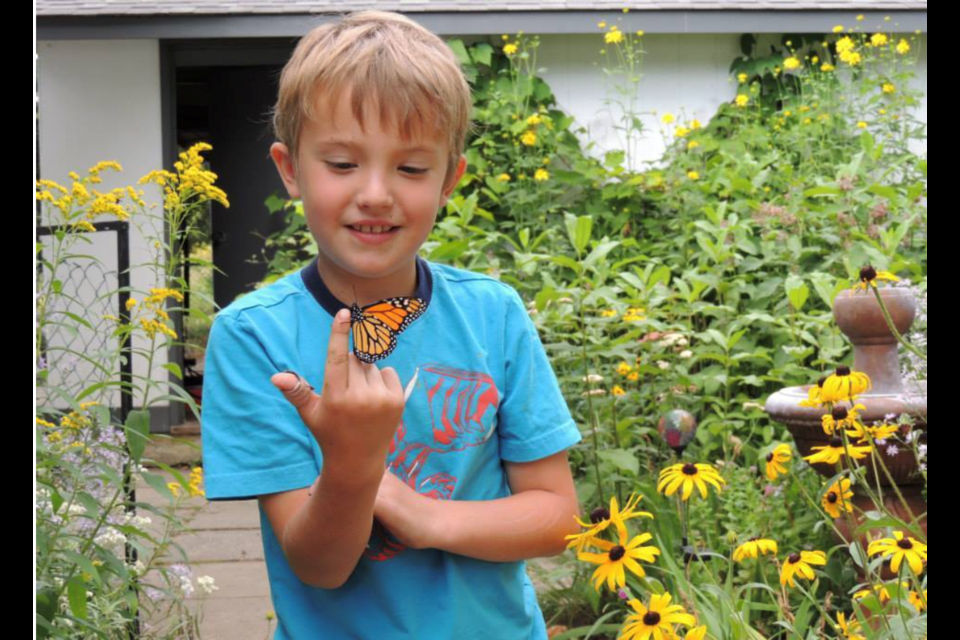Last week, the City of Thunder Bay released a draft of its new Clean and Clear Yards By-law. The changes were prompted after city council voted to review the bylaw last September following a deputation by Kyla Moore to advocate for support for naturalization of yards and allowances for boulevard gardening.
Currently, “natural” gardens are in a grey legal area. The new bylaw aims to define what is allowed, but the initial draft bylaw, released last week, drew criticism for stipulating that naturalized gardens be limited to 50 per cent of a yard, and that a one-metre buffer zone of mown lawn on the perimeter would be mandatory.
“Ostracizing natural gardens by restricting them to 50 per cent of a yard, while lawns are allowed to cover 100 per cent of a yard, relegates Indigenous plant species to a secondary status below the colonial lawn standard and exotic plant imports, when they should in fact, be celebrated and brought to the forefront of our landscapes,” Moore states.
The city is inviting feedback from residents until May 30, and many have already responded to the survey. Moore, who spoke with Doug Vincent, manager of Licence and Enforcement on Wednesday, says the city is listening to residents and is revising the draft.
“He confirmed the following: 100 per cent of a yard can be transformed into a natural garden, the requirement for buffer strips will be removed, and intentional natural garden habitat features [such as decaying logs] will be exempt from the “waste” definition. All turfgrass will continue to be regulated to a maximum height of eight inches,” Moore says.
Those changes will bring Thunder Bay closer to Toronto’s new Turfgrass and Prohibited Plants Bylaw, which came into effect Jan 1, 2022.
“It’s the new gold standard natural garden bylaw,” Moore says. “Toronto allows natural gardens on 100 per cent of a yard with no exemption process, but they continue to restrict turf grass to 8 inches in length.”
(Allowances for Boulevard Gardens are not part of the draft Clean and Clear Yards By-law, but the city is working on that and will be seeking public feedback some time this summer, according to Moore.)
Erin Beagle, executive director of Roots to Harvest, says it is in the city’s interests to promote more biodiversity within the city.
“It’s better for water management, it’s better for our overall health. The city declared a climate emergency, and this helps them move forward on those declarations and strategic directions,” she says. “Allowing people to dedicate more of their yard to increasing biodiversity or increasing food security [by growing food] is good for everybody.”
Moore says a key issue that stands out when speaking to both city officials and residents is that many people do not have a comprehensive understanding of what naturalization is.
Creating a naturalized yard does not mean neglecting to mow the lawn, she points out. The first step is to remove the existing lawn. It is then replaced with a diverse plant community that emphasizes native plant species. These are more likely to be beneficial to the local ecosystem, providing food and habitat for pollinators.
Educating the public doesn’t have to be the sole responsibility of the bylaw department, Beagle says.
“This is where community organizations can come in. Roots to Harvest can be a point of contact, not for complaints, but for learning how to [make a naturalized garden,]” she says. “Organizations such as EcoSuperior and the Horticultural Society would be happy to support this. There’s so many resources,” she adds.
Moore has devoted countless hours to researching, preparing materials, talking to stakeholders and listening to feedback. Thanks to her advocacy, we may see major changes in Thunder Bay next year.
A revised draft bylaw will be presented to city council on June 20, and residents will be able to give feedback again before council votes on it.
“I am very hopeful that what is presented to city councillors will be a bylaw that aligns with our city’s climate and sustainability strategies, and makes the community proud,” Moore says.



